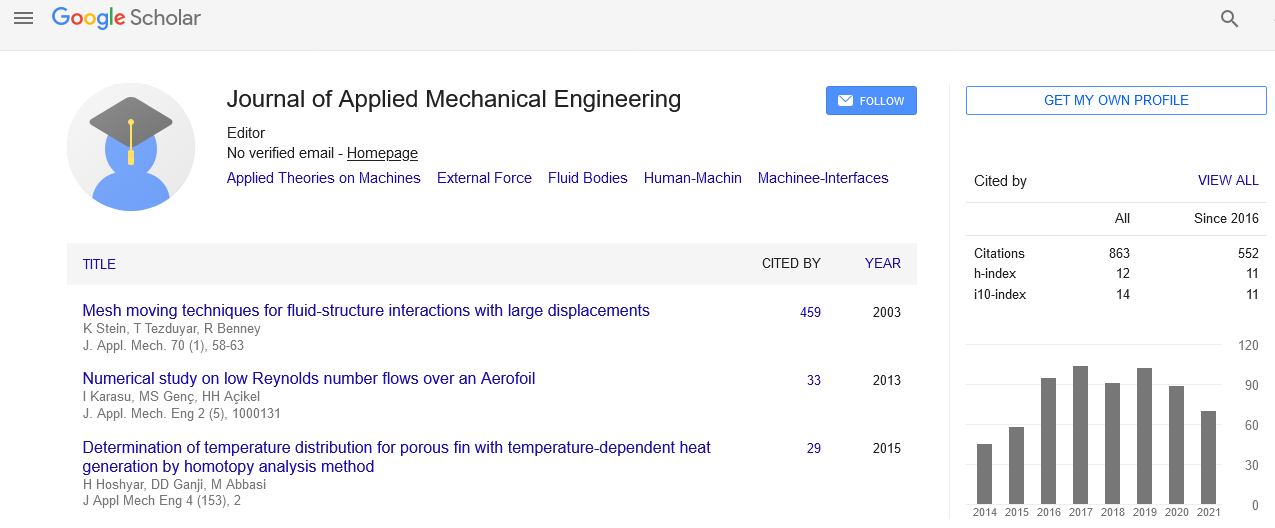Indexed In
- Genamics JournalSeek
- JournalTOCs
- CiteFactor
- RefSeek
- Hamdard University
- EBSCO A-Z
- OCLC- WorldCat
- Publons
- Google Scholar
Useful Links
Share This Page
Journal Flyer

Open Access Journals
- Agri and Aquaculture
- Biochemistry
- Bioinformatics & Systems Biology
- Business & Management
- Chemistry
- Clinical Sciences
- Engineering
- Food & Nutrition
- General Science
- Genetics & Molecular Biology
- Immunology & Microbiology
- Medical Sciences
- Neuroscience & Psychology
- Nursing & Health Care
- Pharmaceutical Sciences
Screw theory for robotics - A modern mechatronics mathematical foundation
Joint Event on 2nd International Conference on Advanced Robotics, Mechatronics and Artificial Intelligence & 3rd International Conference on Design & Production Engineering
December 03-04, 2018 | Valencia, Spain
Jose M Pardos Gotor
UC3M, Spain
Keynote: J Appl Mech Eng
Abstract:
The importance of screw theory in robotics is recognized, but in practice, not many teach it to engineering students. Only few
postgraduates know how to exploit it. However, in a variety of areas of robotics, the methods and formalisms based on the
geometry and algebra of the screws have proven to be superior to other techniques and have led to significant advances recognized
by robot researchers. Many say that kinematics for robots of many degrees of freedom (DOF) can only be addressed in a practical
way with numeric algorithms. However, this approach is not very suitable for real time applications. Screw theory paves the way
for solving kinematics with very compelling computational geometric algorithms truly effective and efficient, even for mechanisms
and robots with many DOF. Using the product of exponentials, it is possible to develop geometric algorithms to solve the inverse
kinematics problem. This method was originally presented by Paden and built on the unpublished work of Kahan. It is possible to
develop additional problems to solve the inverse kinematics of different robots. For instance, the author presents some Pardos-Gotor
(PG) canonical subproblems useful for solving prismatic joints. Several examples with applications to real industrial robots will be
presented with MATLAB-Simulink-Simscape simulations and videos.
Recent Publications
1. J M Pardos Gotor (2018) Screw theory for robotics ??? an illustrated handbook. Amazon Fulfillment, ISBN:
31214278R00123.
Biography :
Jose M Pardos Gotor has an extensive international career in the energy industry. He works for the Spanish utility ENDESA and has developed projects in Europe and Latin America in the fields of: Change Management, Sustainability, Electric Vehicles, Business Model Generation, Innovation, R&D, Commodity Markets & Trading, Energy Management and Power Generation. He is an Associate Professor in the Department of Systems Engineering & Automation at the UC3M (Universidad Carlos III de Madrid). His teaching and research areas are focused on production systems, industrial automation and robotics.
E-mail: jpardos@ing.uc3m.es

